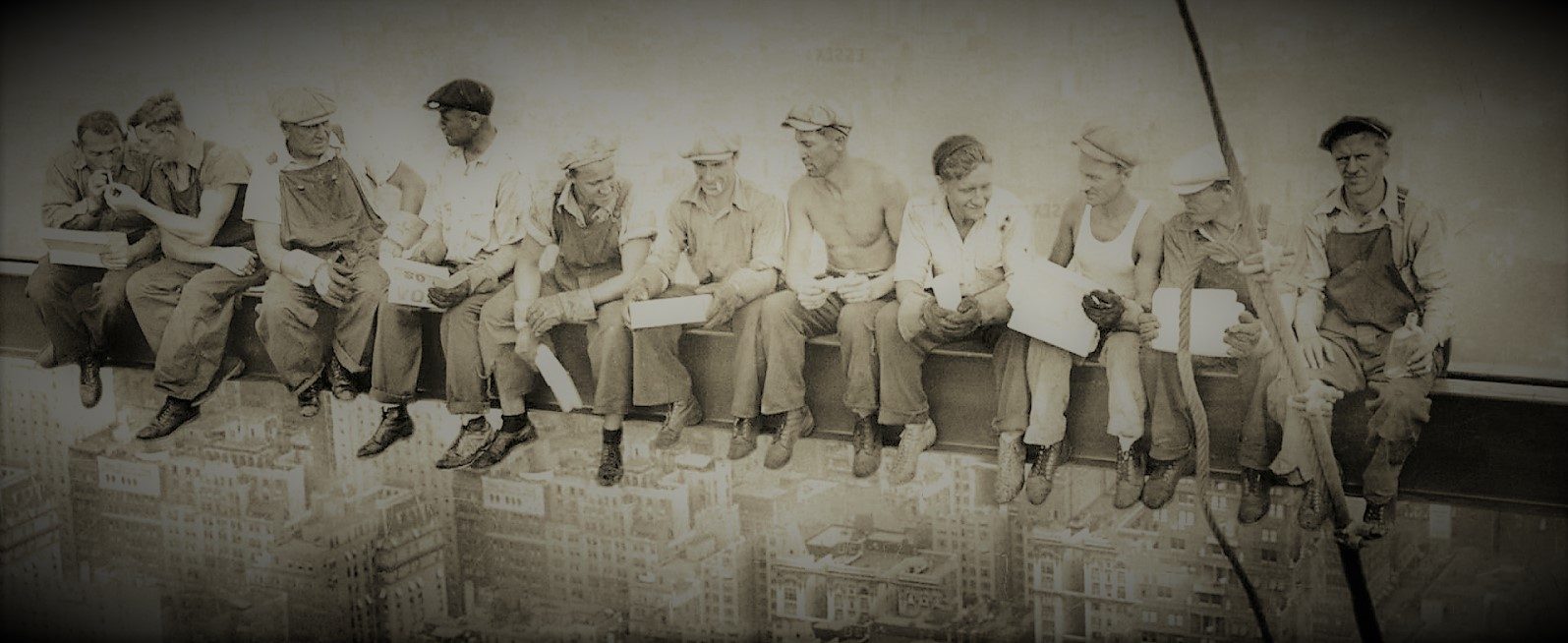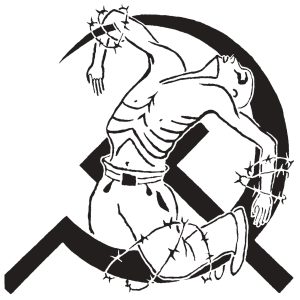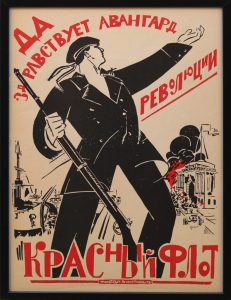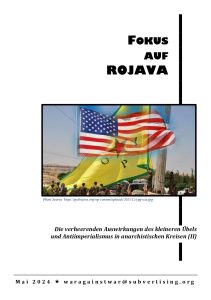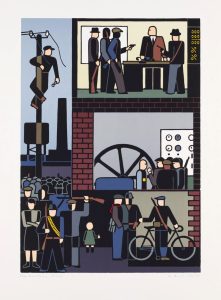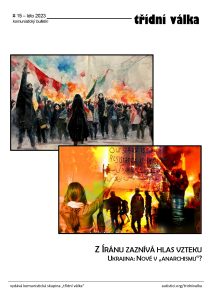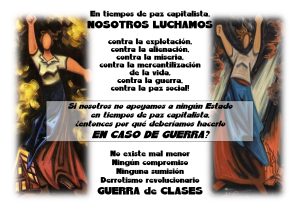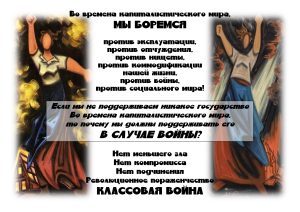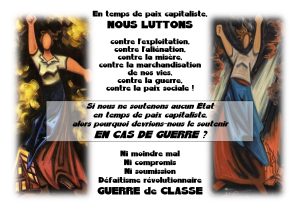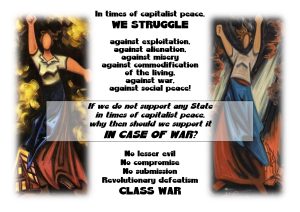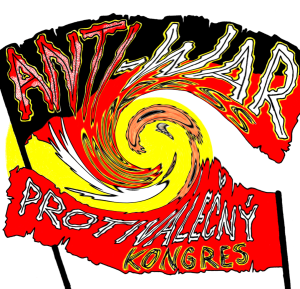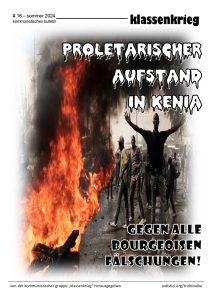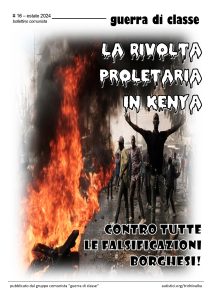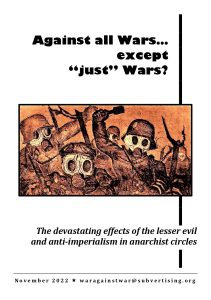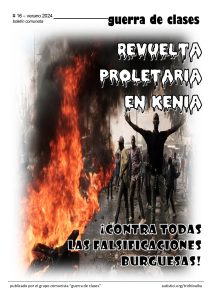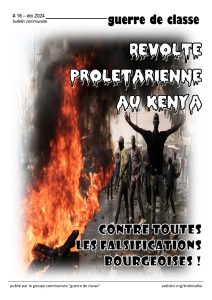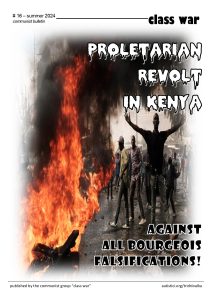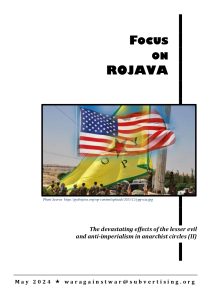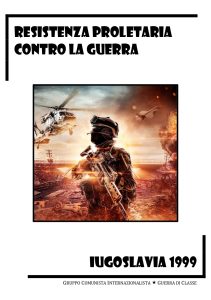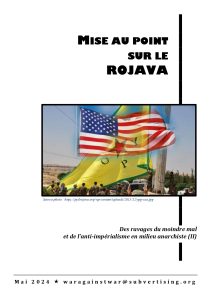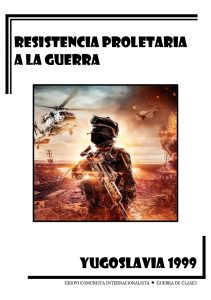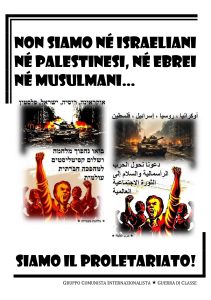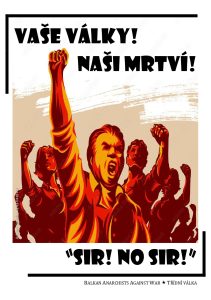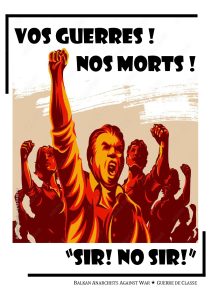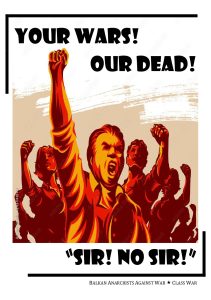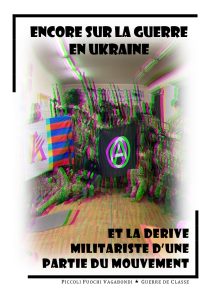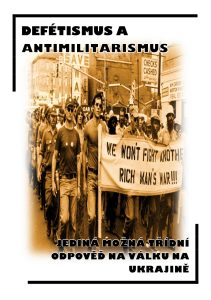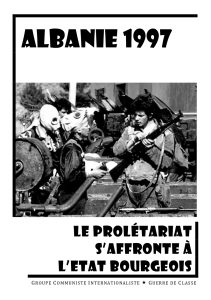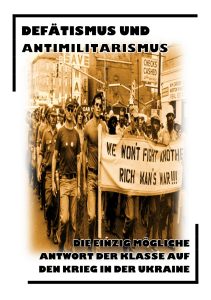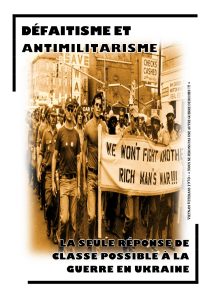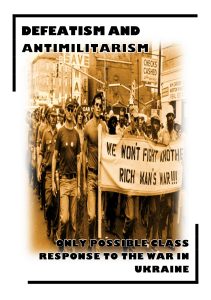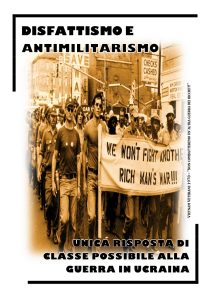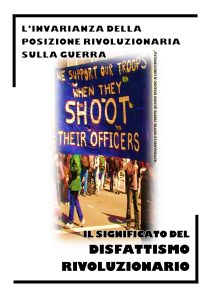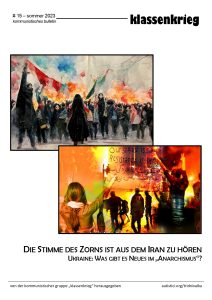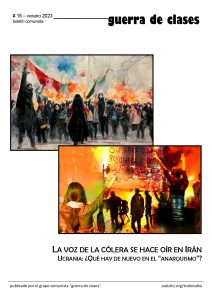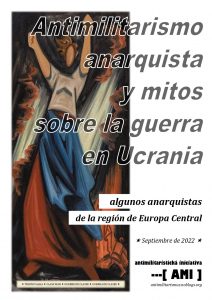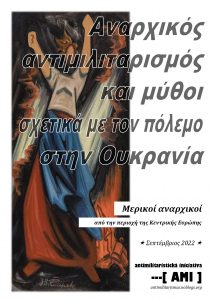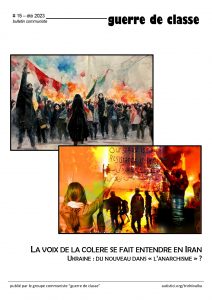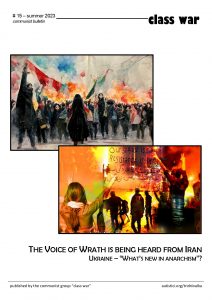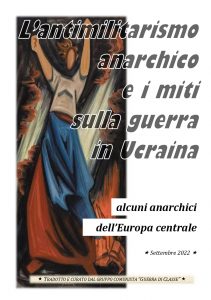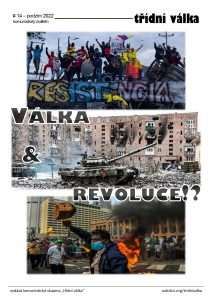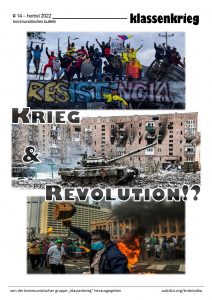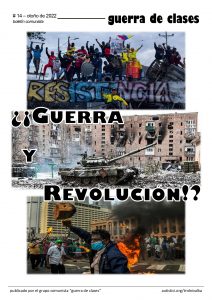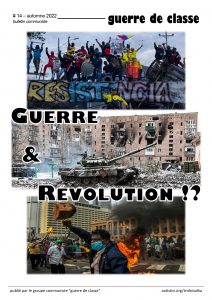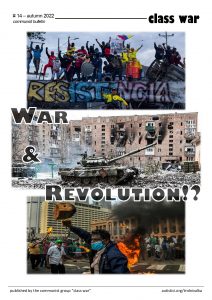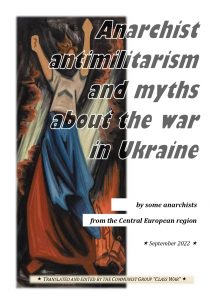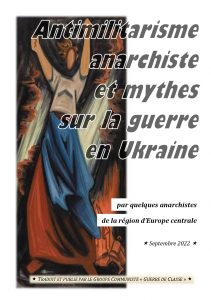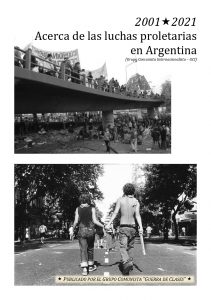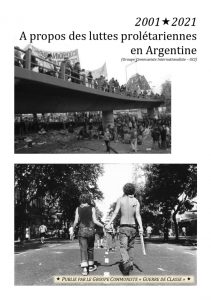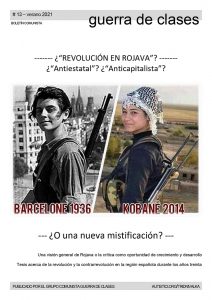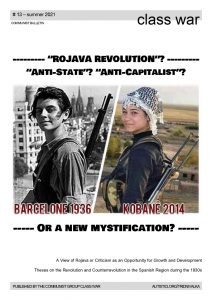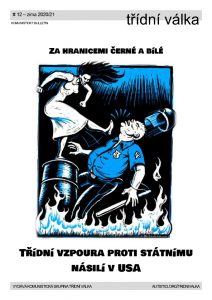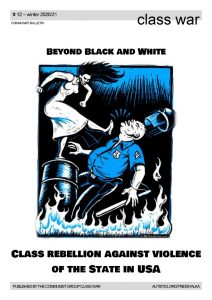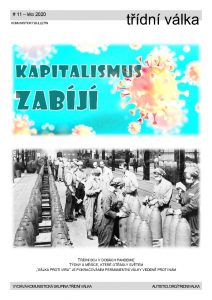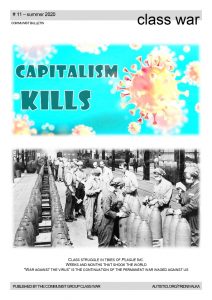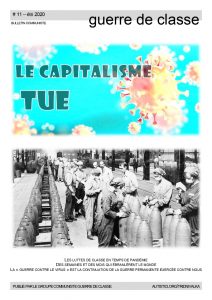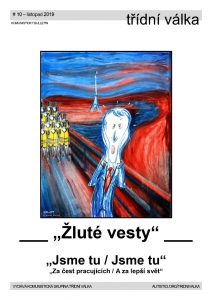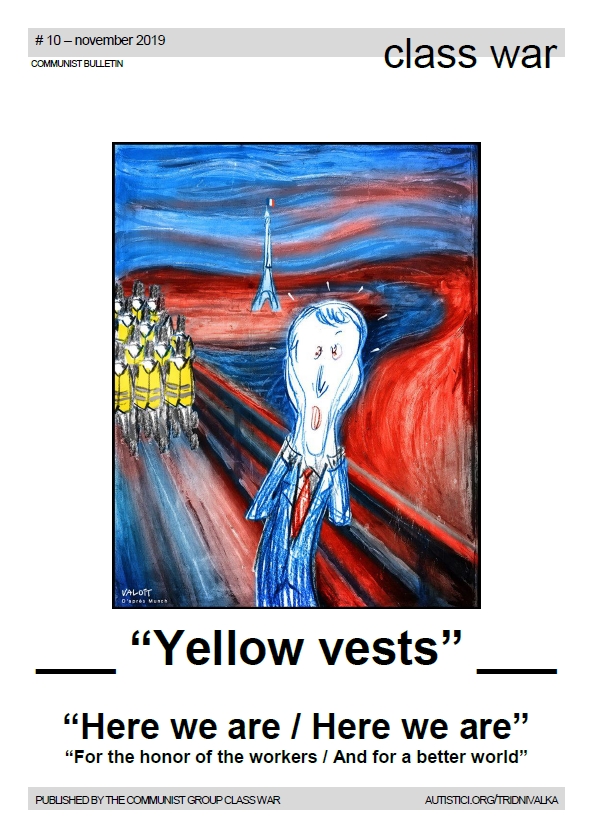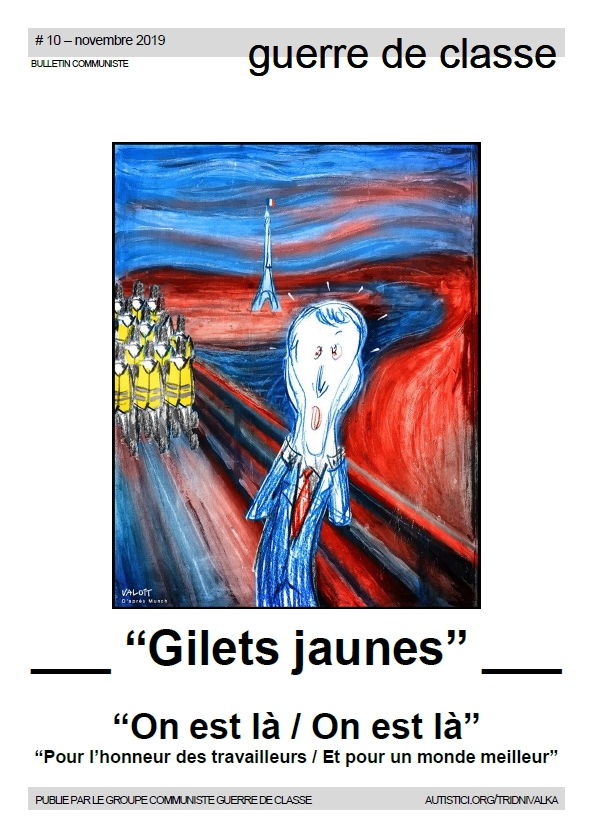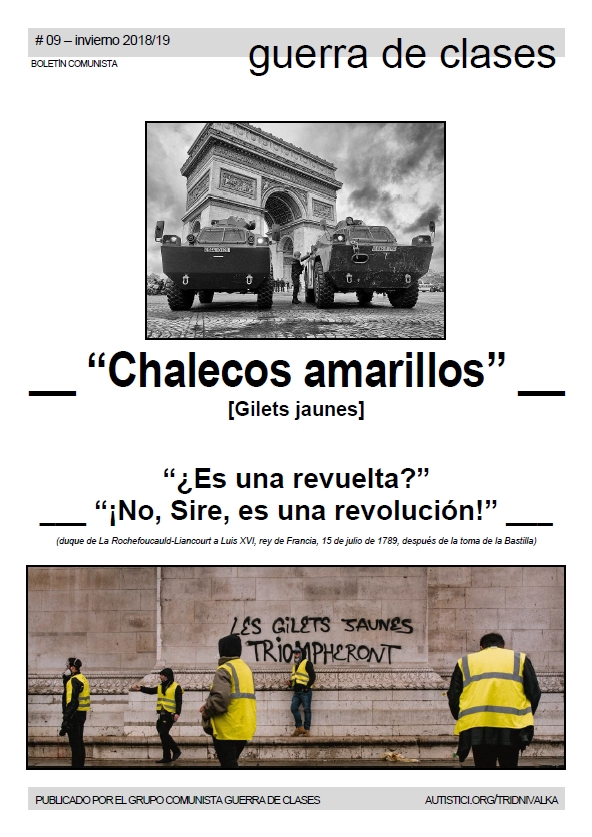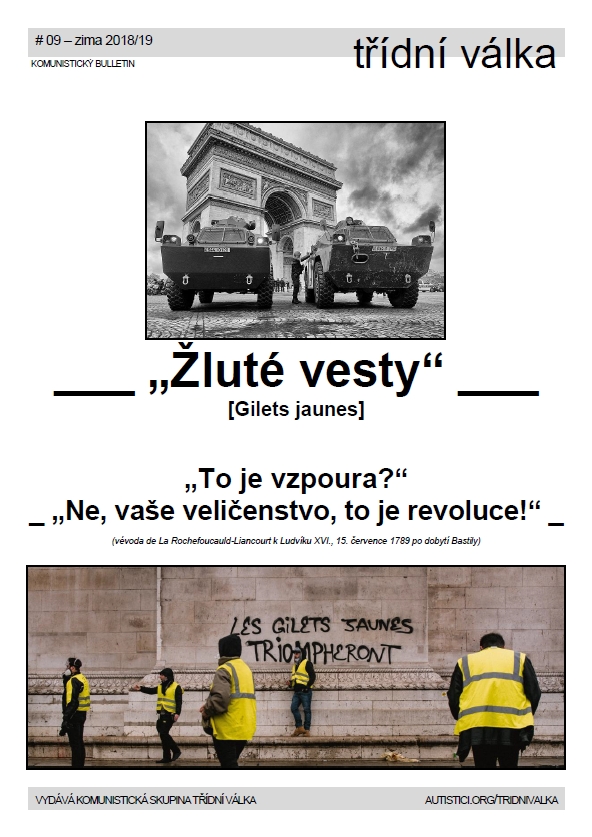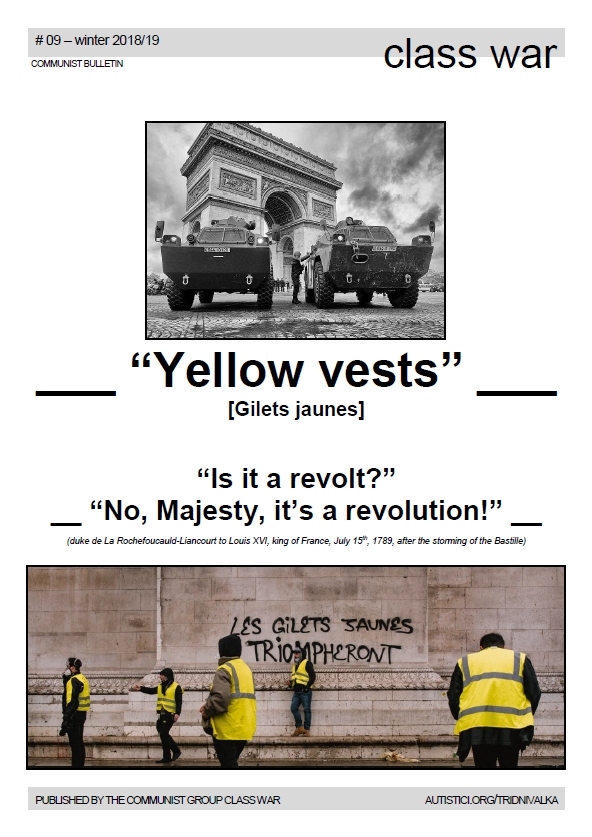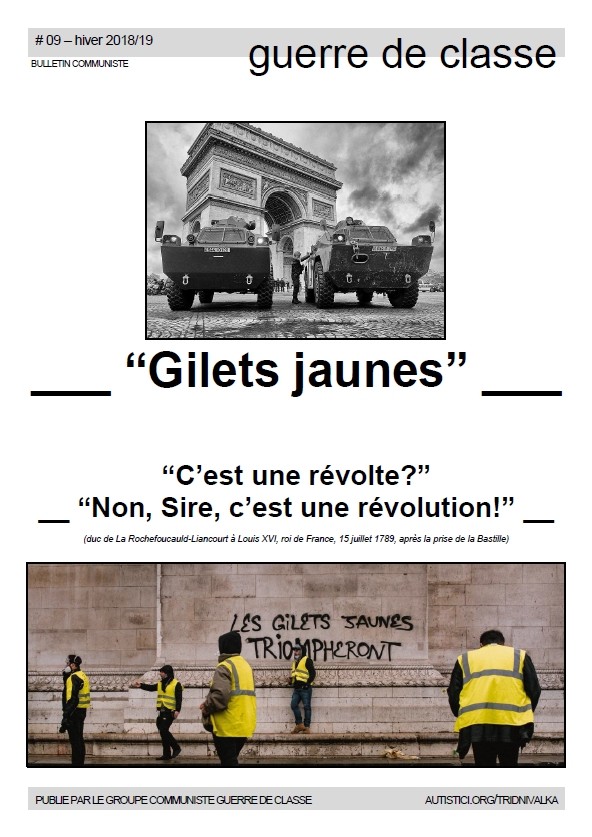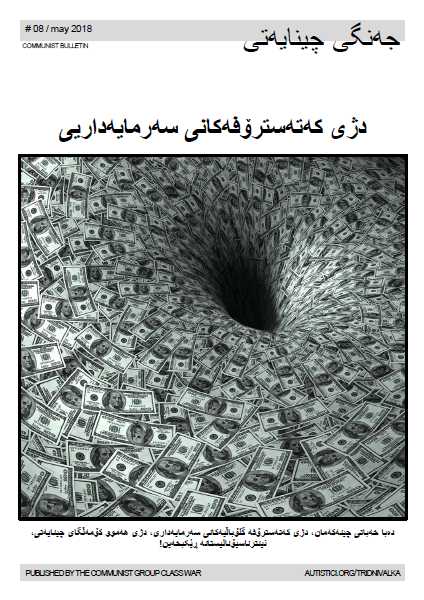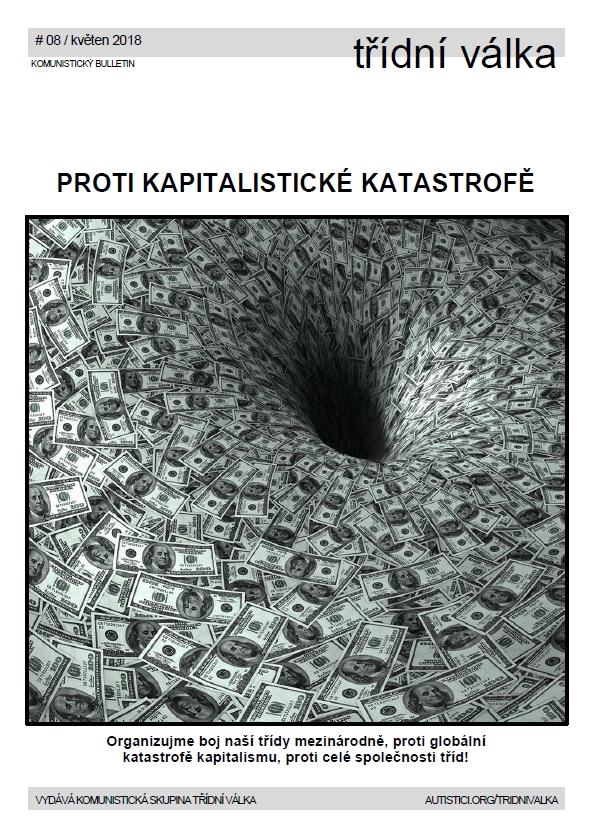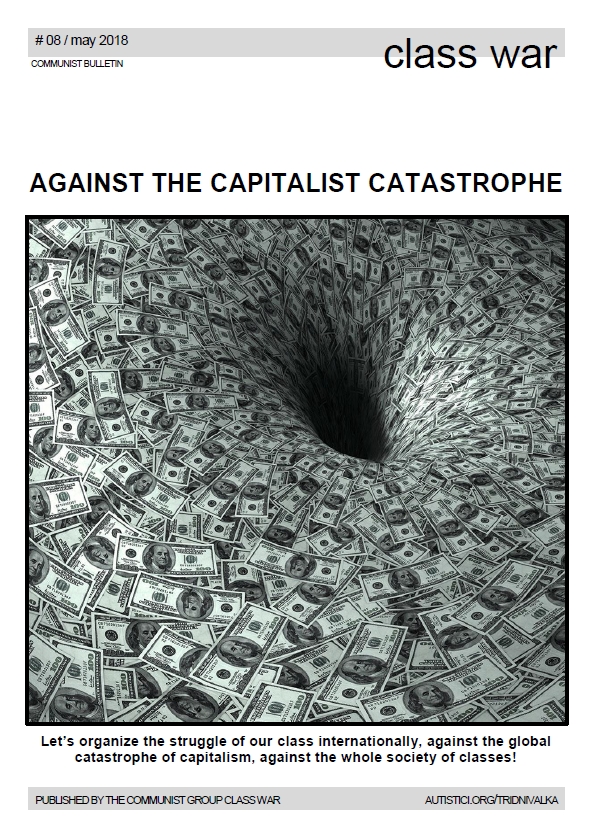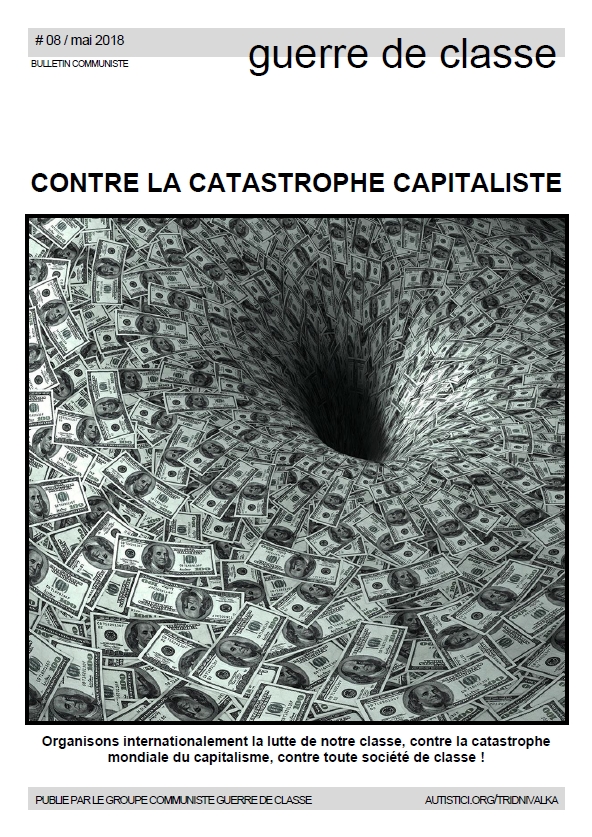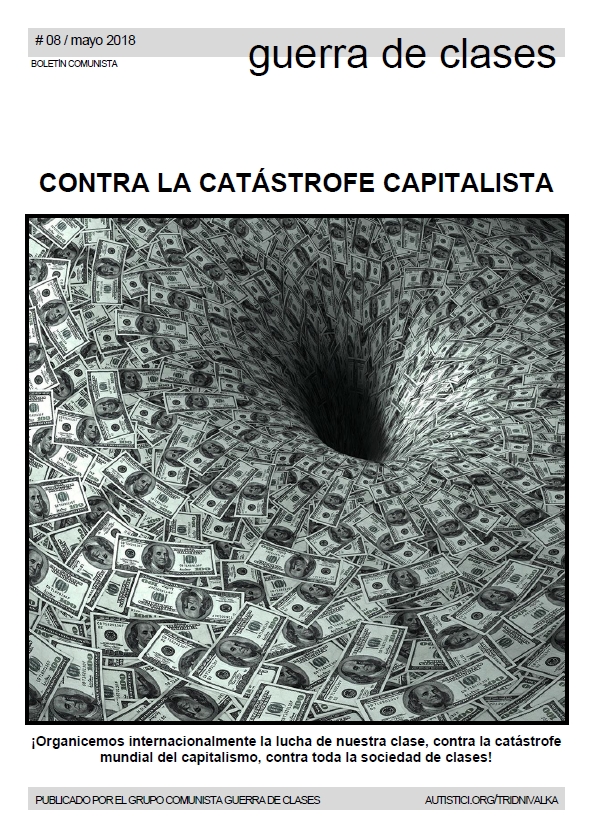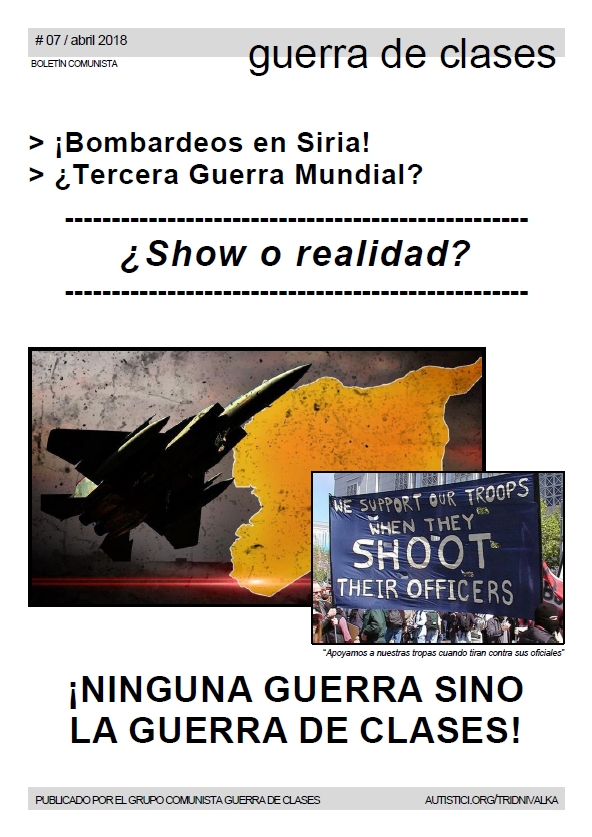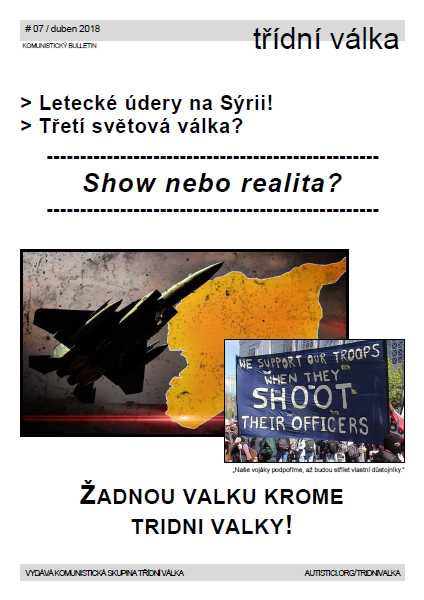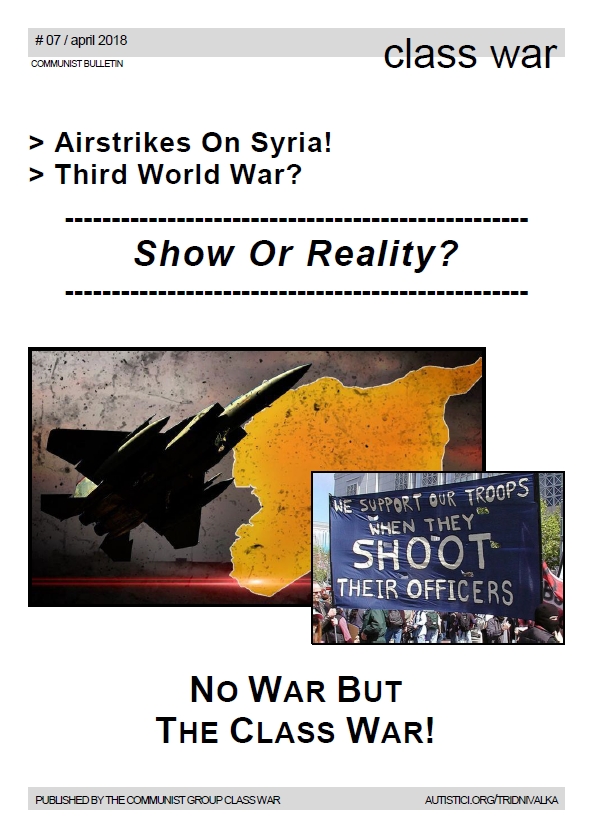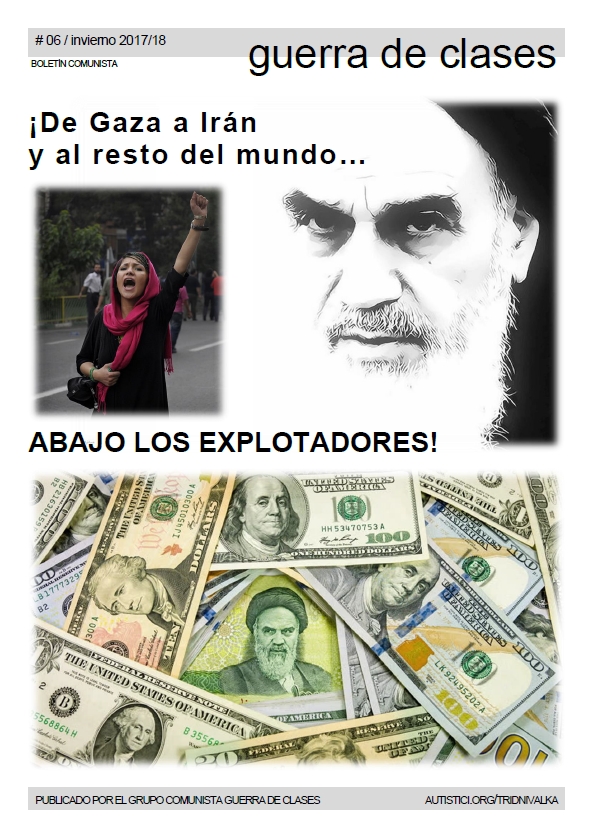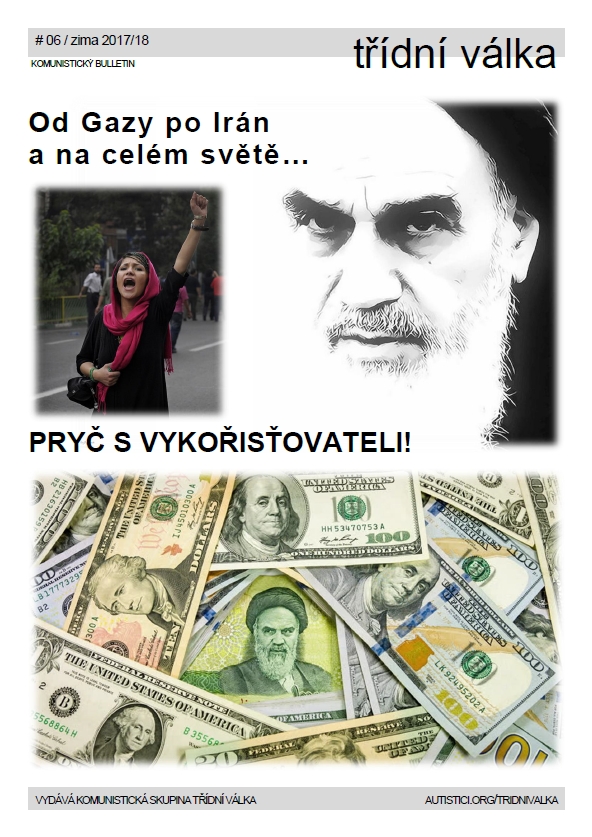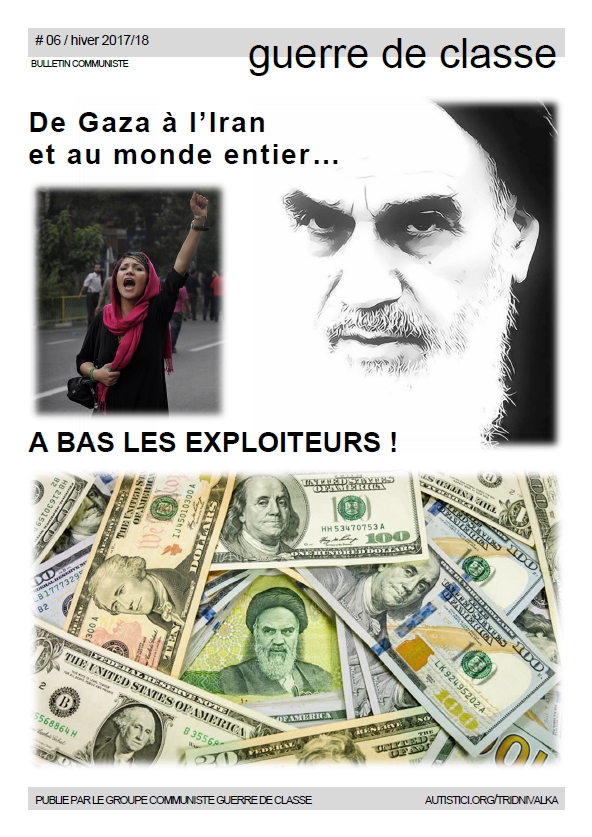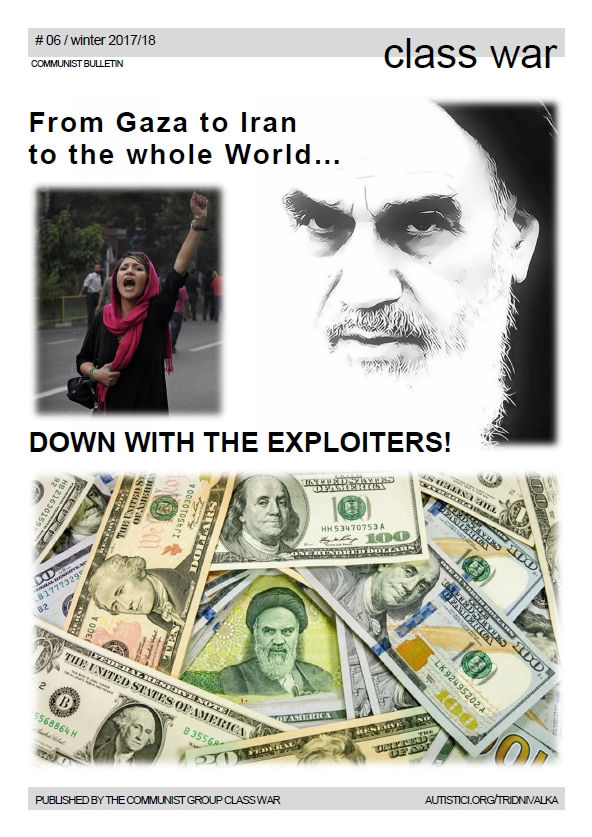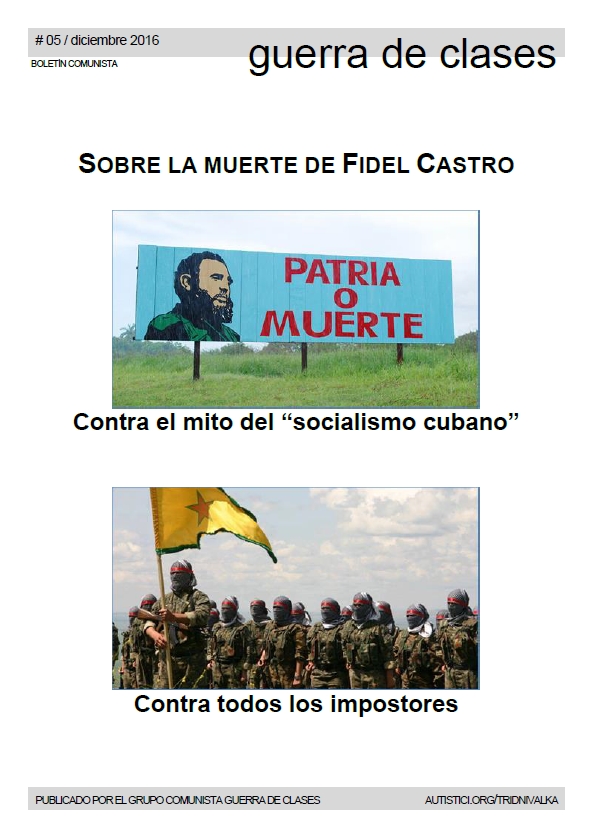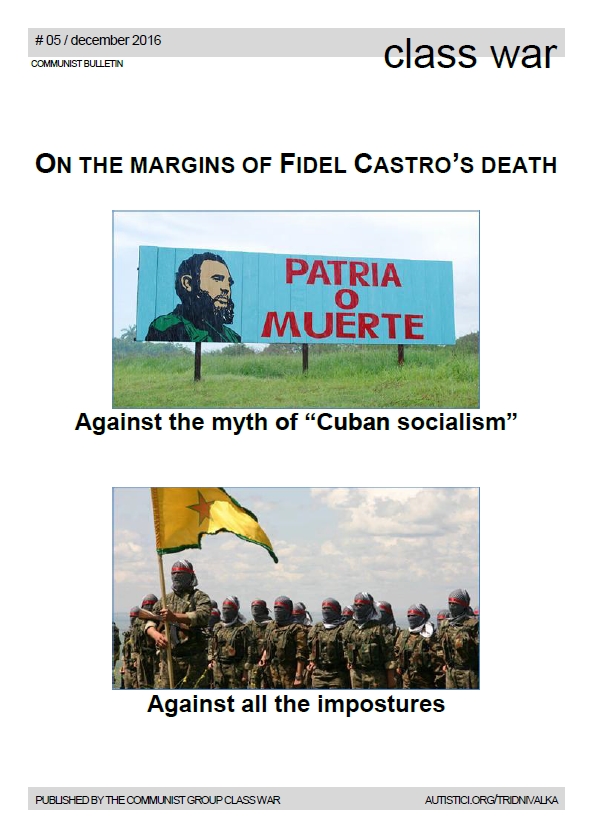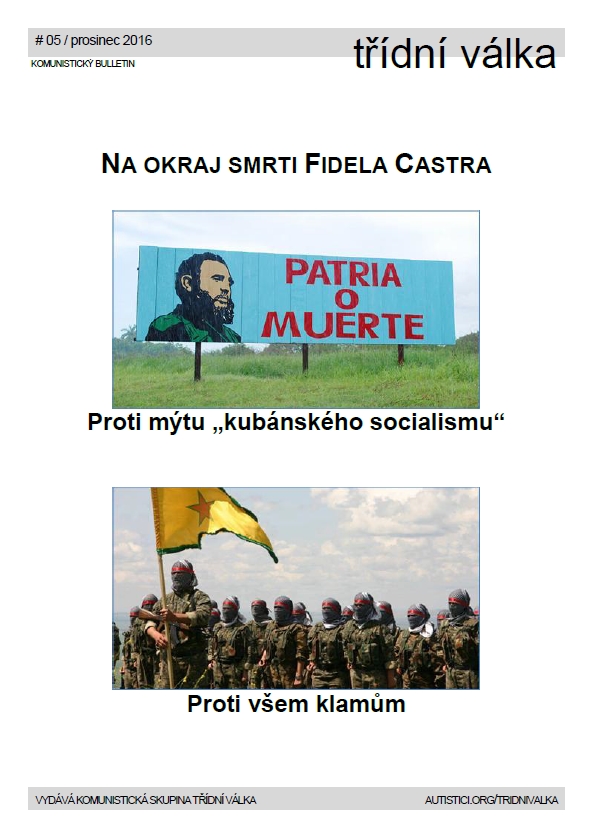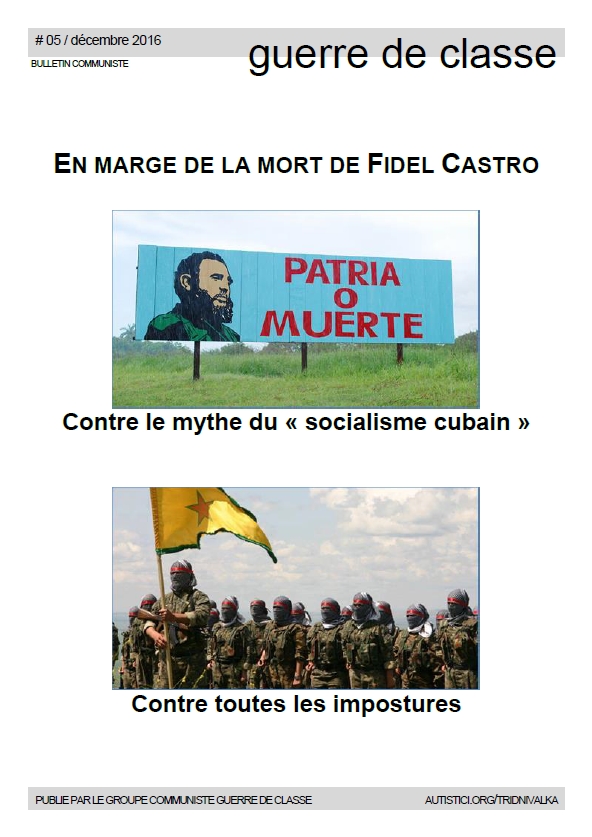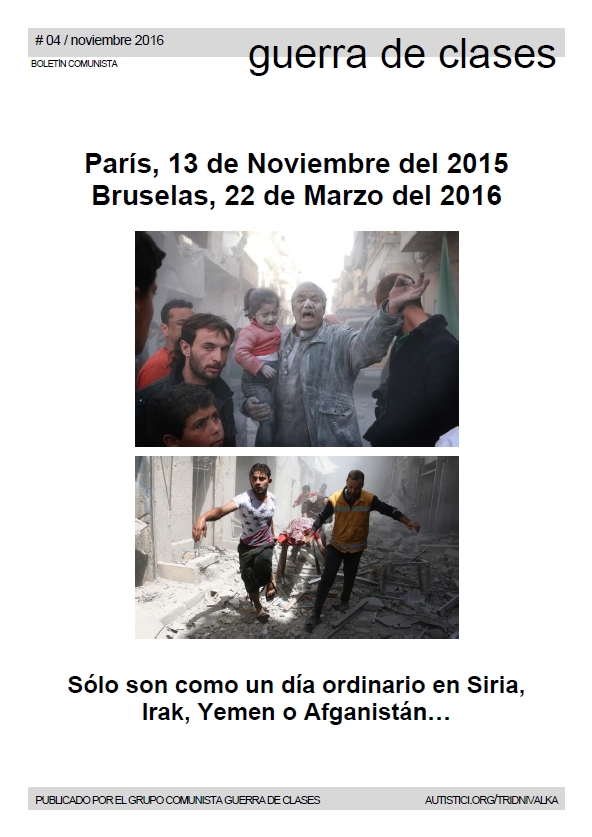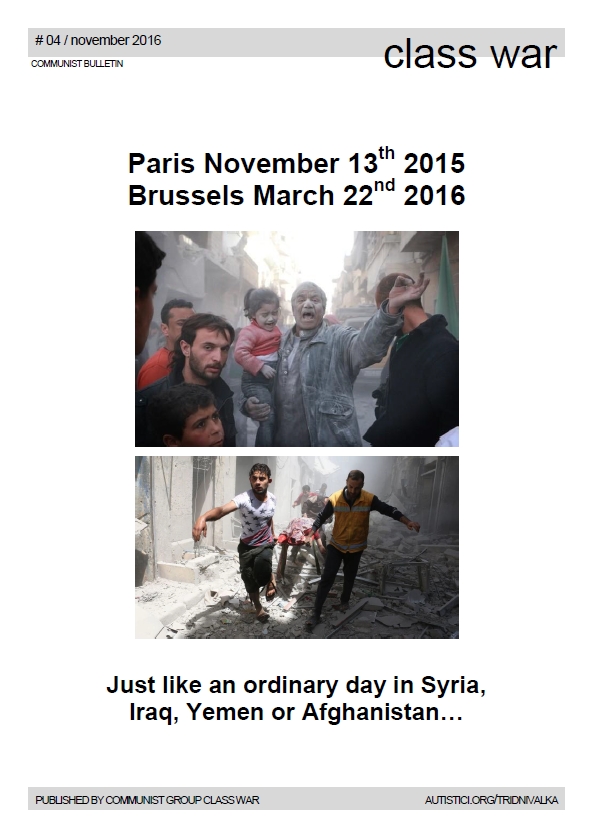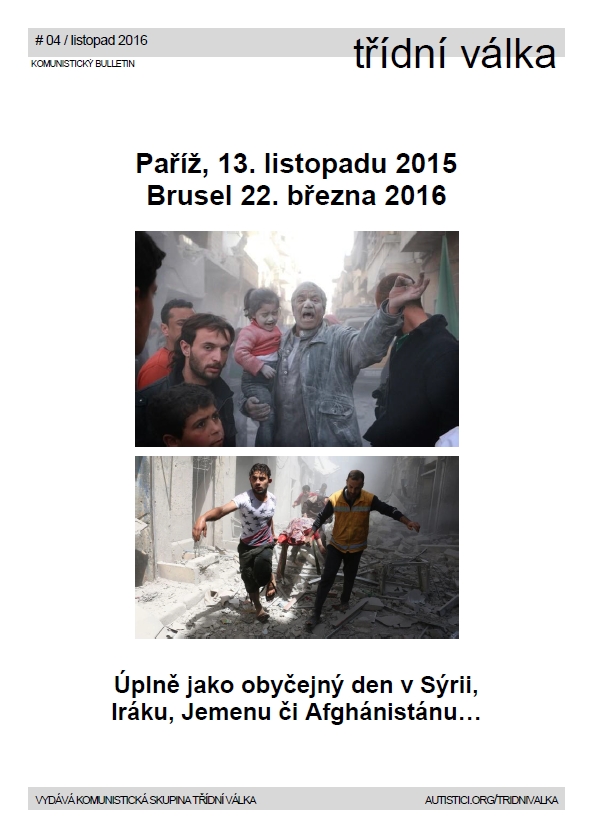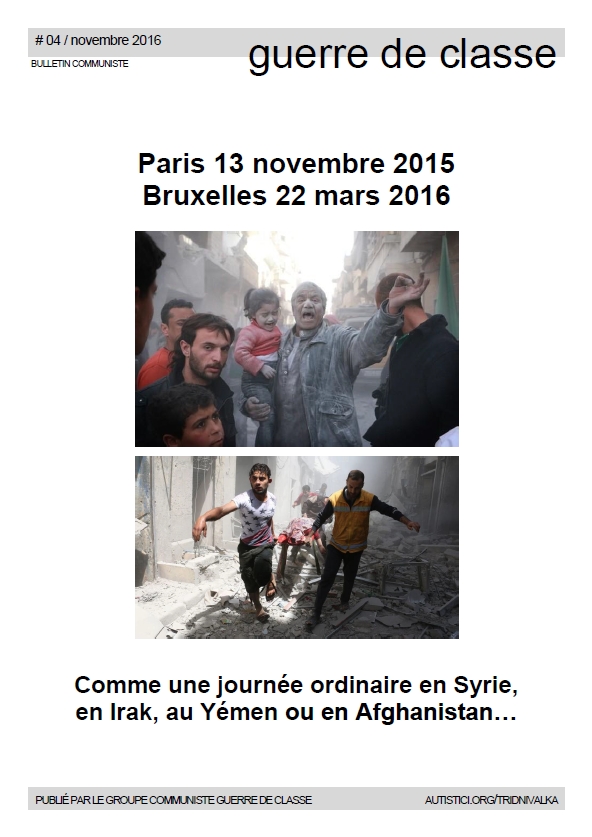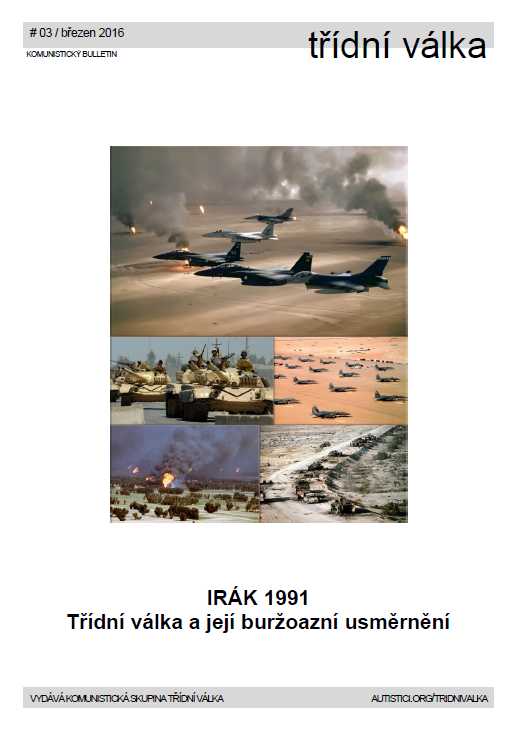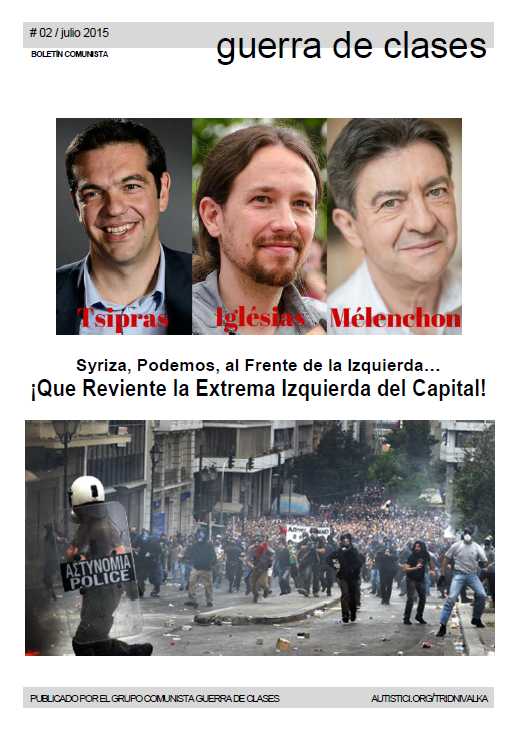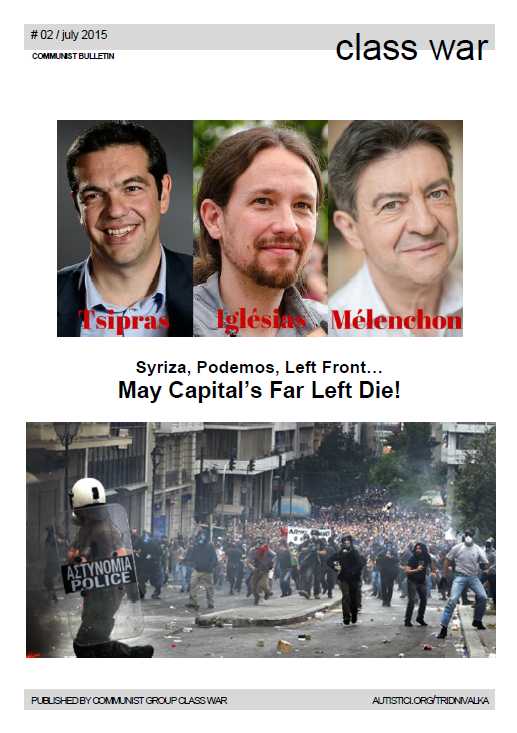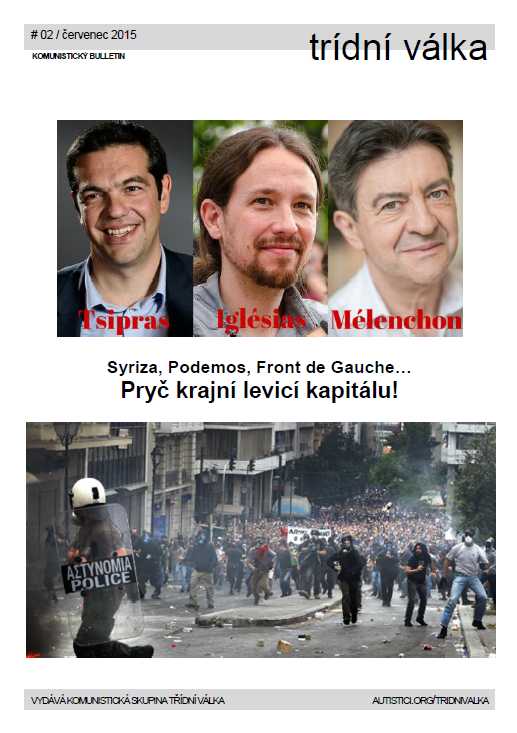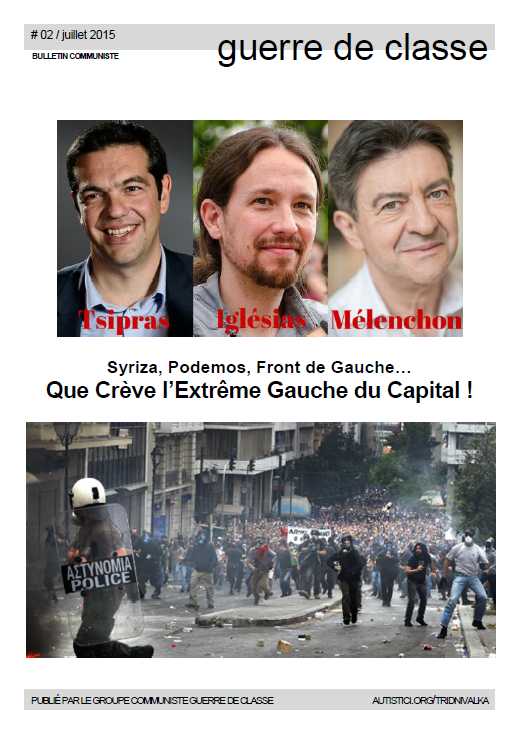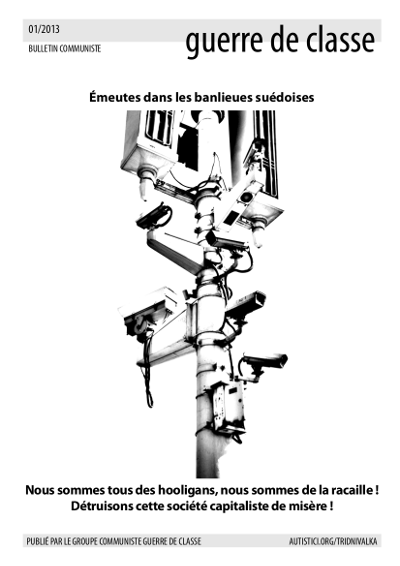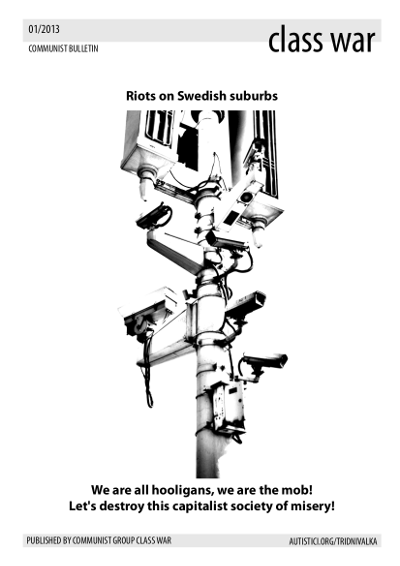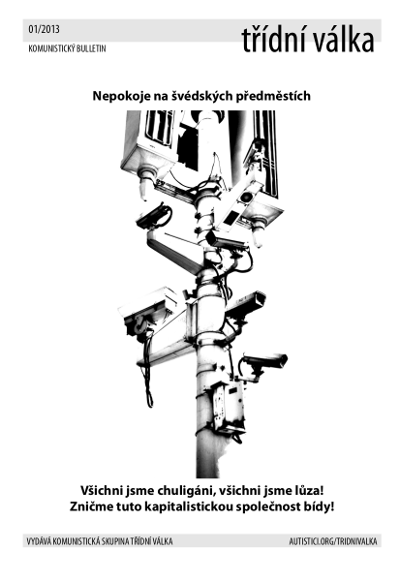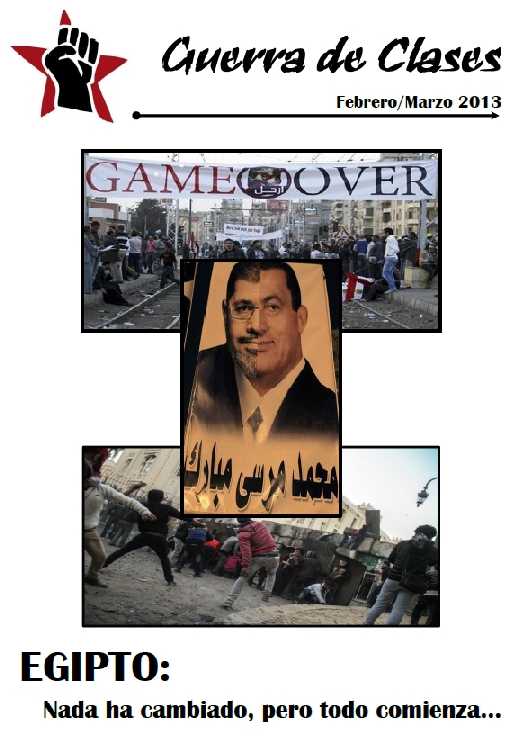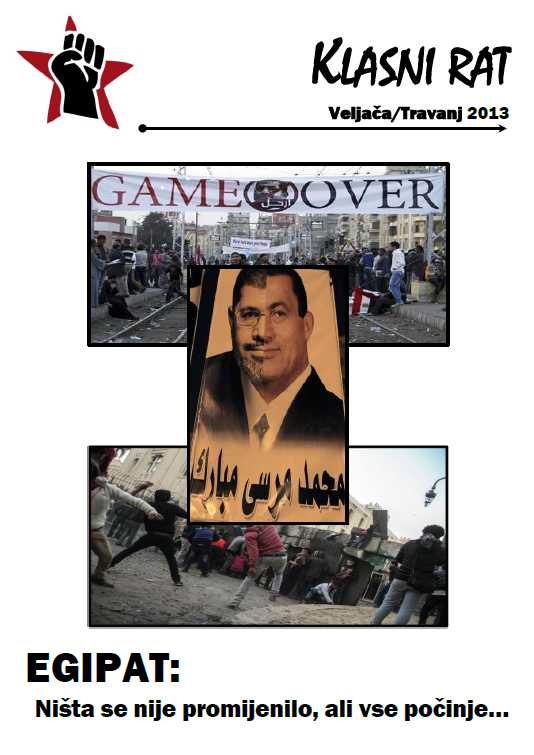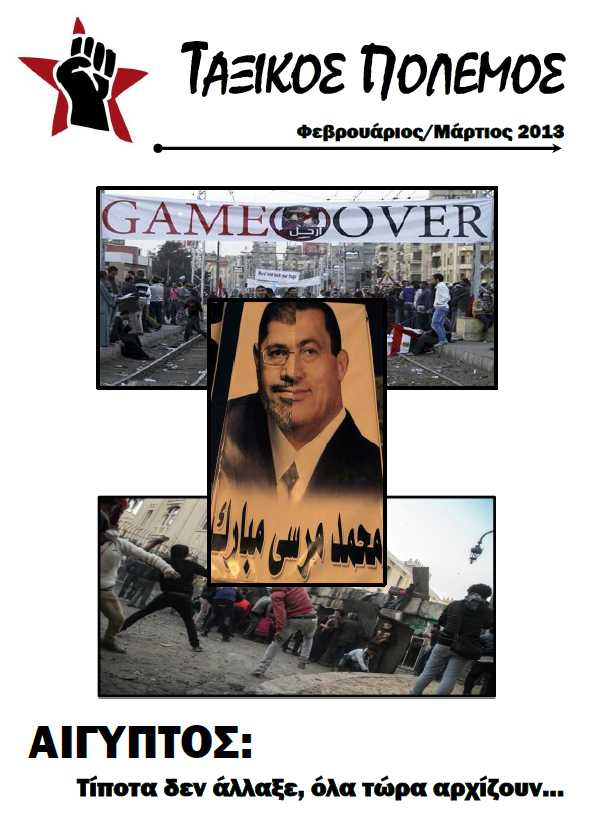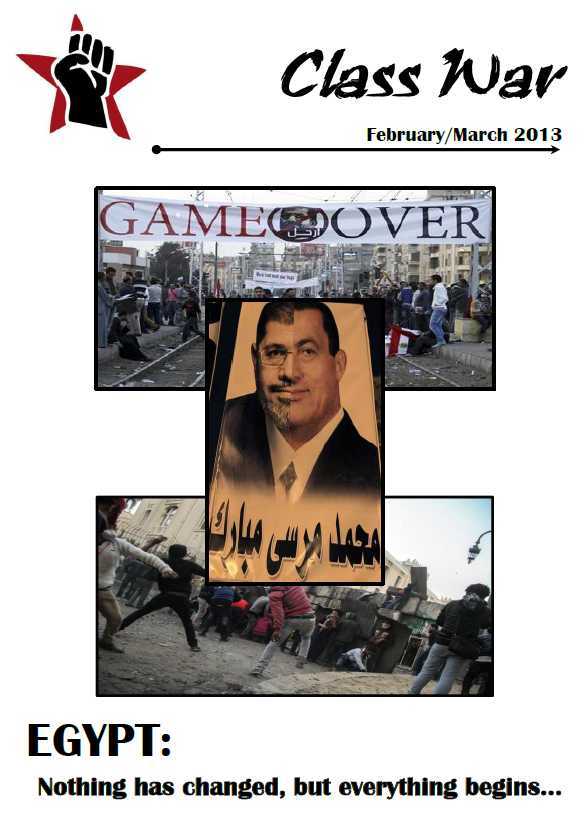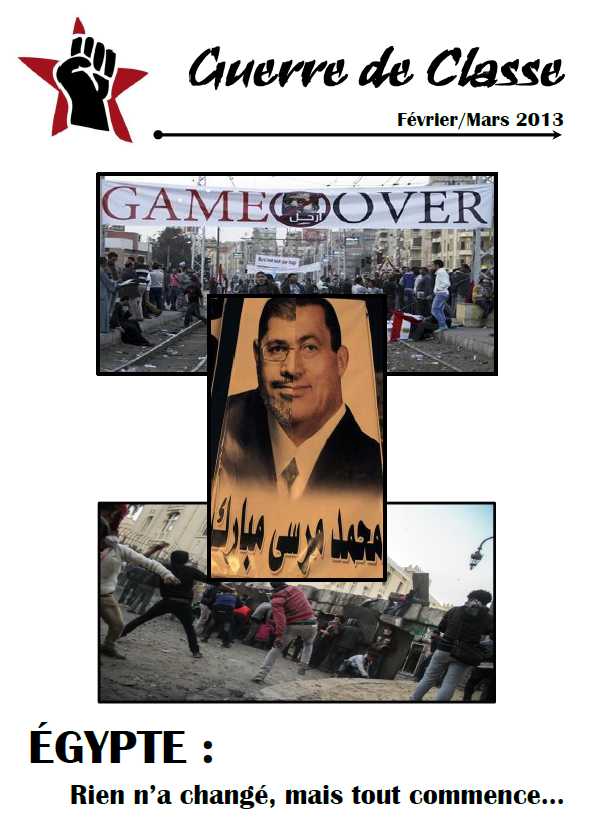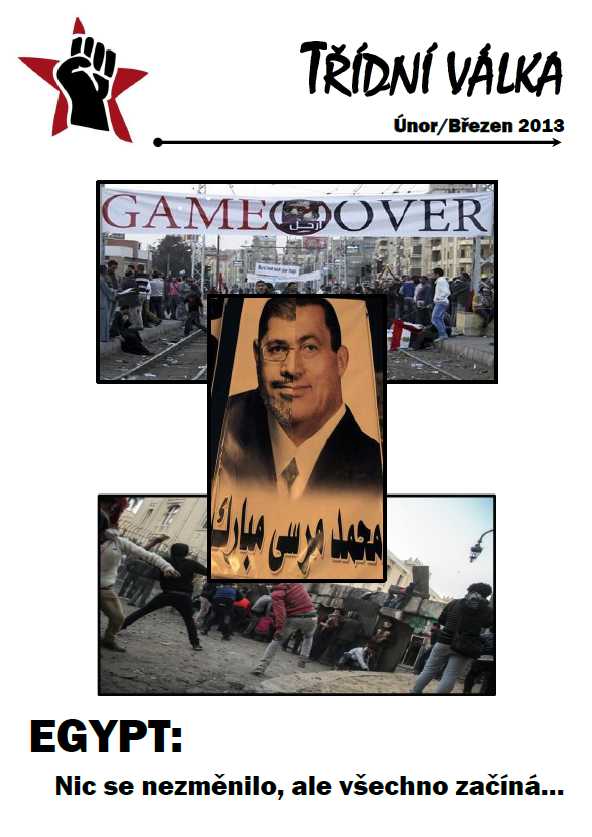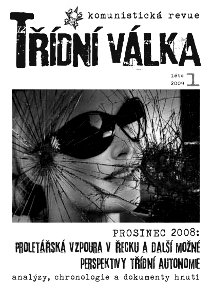| Español | Čeština | English | Français | Magyar | Português | PDF |
Source in Spanish:
https://materialesxlaemancipacion.espivblogs.net/2017/04/22/venezuela-capitalismo-y-lucha-de-clases/
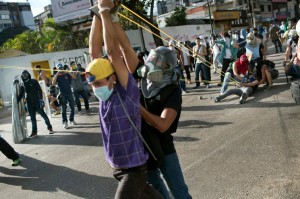 The three following statements were published between 2013 and 2015 by different comrades. Although two years have passed since then, we are convinced that their content is not without relevance, and on the contrary, the balance that they carry out quite corresponds to what is happening in the region of the Caribbean Sea.
The three following statements were published between 2013 and 2015 by different comrades. Although two years have passed since then, we are convinced that their content is not without relevance, and on the contrary, the balance that they carry out quite corresponds to what is happening in the region of the Caribbean Sea.
As everybody already knows, the materials we publish on this blog have always aimed to get out of the ideological wheel that is equally present in the left and right media. If our local reality generally overtakes us, it is even more true for what happens abroad. However, to limit ourselves to abandon all efforts to generate criticism, to divulge and discuss it, has no reason to be. Contributions such as these should not be understood as definitive, but as efforts that are part of a continuous process, as simple (but necessary) contributions to forge our own alternatives of struggle, autonomous and genuinely revolutionary based on radical criticism. Obviously, to give a correct answer to all the implications that concern the practical terrain of the struggle, as well as the innumerable tasks that entails to organize it, all that will be neither solved in a few lines, nor achieved mechanically or in the short term, and even lesser with voluntarism and immediate activities. Constant failures and disruptions will have to occur in the streets to catch a glimpse of the advances.
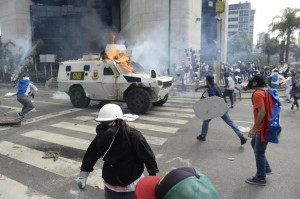 Meanwhile, while describing a little the question we are discussing about, we must emphasize and summarize the following things: standing under the banners of the false antagonism “Yankee imperialism vs. Latin-American socialist democracy” means to blindly accept to jump off a cliff, it’s taking part into a mockery of opposition that will inevitably lead us to keep things the same (or worse than before). Therefore, when we raise the slogan: “Neither Chavism nor the opposition”, we are not making use of a simple disruptive motto. Far from that, we are unabashedly exposing a reality that has been confused and distorted by all factions of the bourgeoisie since years.
Meanwhile, while describing a little the question we are discussing about, we must emphasize and summarize the following things: standing under the banners of the false antagonism “Yankee imperialism vs. Latin-American socialist democracy” means to blindly accept to jump off a cliff, it’s taking part into a mockery of opposition that will inevitably lead us to keep things the same (or worse than before). Therefore, when we raise the slogan: “Neither Chavism nor the opposition”, we are not making use of a simple disruptive motto. Far from that, we are unabashedly exposing a reality that has been confused and distorted by all factions of the bourgeoisie since years.
The self-proclaimed Bolivarian revolution is not at all opposed to capitalism. Socialism of the 21st century is nothing more and nothing less than reformism framed into the continuity of the bourgeois democratic tasks, that is to say: the defense of the economy, the value, the State, the nation, progress and developmentalism.
On the other hand, neither Hugo Chavez nor Maduro were fascist dictators, on the contrary, they are as democratic as their counterparts demanding “the release of political prisoners in Venezuela” (obviously they refer exclusively to MUD prisoners). All the citizenists, rightists, democrats who get cynically and hypocritically indignant and denounce the police repression carried out by the Bolivarian government, simultaneously in “their own countries”, also act as accomplices, denouncers, sponsors and even direct participants in the repression and the massacre of precarious, impoverished and marginalized proletarians who struggle against exploitation and looting made by oil, gas and mining companies.
The revolutionary struggle that we claim in order to destroy Capital must fight in the same vein all the national States, reducing them to less than ruins; regardless of the adjective that characterizes them, the ideology they proclaim, or the person or group that is at the head; this is an essential affirmation of our historical program.
[Materiales]
# # #
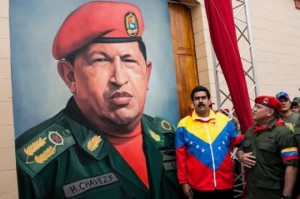 THE MYTH OF THE LEFT IS RIPE TO COLLAPSE[1]
THE MYTH OF THE LEFT IS RIPE TO COLLAPSE[1]
The social and economic situation of Venezuela, after 14 years of Chavez government and more than a year of Maduro government, could not yield more than the results we are seeing today. It is necessary then to make a historical review to contextualize the present explosion of social unrest.
This succession of “socialist” governments and the present crisis can only be understood and denounced while knowing that the socialism which we are talking about is without any doubt a bourgeois “socialism”. It is the Social Democracy establishing its “workers” governments, claiming the national sovereignty, the defense of the national economy, pretending to rule for the class that it is precisely crushing. The Bolivarian revolution is conceived with nationalizations, a large revenue from oil, a huge bureaucracy, a lot of nationalism and populism, and sticks and crumbs for most of the proletariat. Venezuela is thus becoming the bastion of the fashionable 21st Century Socialism.
However, whether the means of production are state-owned or not doesn’t change anything. For us, proletarians, it doesn’t make any difference if the one who exploits us is a private owner, the national government or a multinational. Capital doesn’t have only one method to reproduce itself; it uses the one that is useful for its purposes of a better reproduction, for its own valorization. In this sense, if it uses state interventionism and pseudo-“socialist” logic, it does so only on occasions when it ends up being profitable for it, while conciliating at the same time the classes’ antagonistic interests and allowing it to continue to grow, to expand and to use the population with the excuse of the growth of the national economy. As a great fallacy, the bourgeois “socialism” pretends that socialism in one country exists, what as a nationalist (regional, partial) interest can be only the interest of the bourgeoisie aiming to atomize the proletariat. Whatever the shape it takes, every State is imperialist. Any dispute or alliance between States is nothing more than the consequence of the development of the national economies, i.e. of particular bourgeois interests and never the interests of the proletariat.
The Venezuelan crises were always associated, both by Chavez and Maduro, with attempts of putsch or Yankee plots, and codified as being the struggle against the right or the “imperialism”. In absolute coherence, the speech of Nicolas Maduro repeats that he is confronted with a “Coup d’état”, which would be similar to what happened in April 2002 with Hugo Chavez. The false dichotomy between a socialist country and an imperialist power that we denounced above strips off in turn with the trade agreements between these countries. The search for profit, as well as in other contexts the need to repress the proletariat in times of great social turmoil, forces to seek some new discursive subtleties to justify alliances and measures. This is demonstrated by the measures taken by Chavez towards the production of oil on his territory.
After the oil strike in 2002 the Chavez-led government set out to get back the country’s oil companies. Starting in 2005, a series of actions are being undertaken to get back the Orinoco Oil Belt, considered to be the largest oilfield on the planet. In 2007, the Law 5,200 was enacted, which instituted the nationalization of the Belt. Many joint oil companies are formed, in which the Venezuelan government obtains a majority shareholding through its state-owned oil and natural gas company “Petróleos de Venezuela Sociedad Anónima” (PDVSA), thus regaining control – and a large part of the royalties – of the companies that were in hands of international capitals.
In spite of the exaggerated and eccentric media propaganda against the US imperialism, a great ally in the formation of these joint companies was the multinational Chevron, known for the environmental disaster that it caused in Ecuador. Those who champion the “Socialism of the 21st century” as well as all those who support the capitalism always have a justification for these negotiations, when it is not “strategic” it is simply “necessary”. In Venezuela oil is the main source of income. The destinations for its crude barrels are mainly the United States and to a lesser extent Europe and some Latin American countries.
The economic agreements of the oil companies are disguised with speeches that point to the “oil sovereignty” and the promotion of the Social Missions. These emerged as an initiative of the Bolivarian national government and constitute a set of measures to serve the country’s popular sectors. They appeared in a climate of social and economic dispute, whose peak moments were the attempt of coup d’état in April 2002, the oil sector’s strike of December of the same year and the Recall Referendum in August 2004. To this day, the joint enterprises are recognized and extolled for “strengthening the social security of the country” while the budget allocated to the Missions grows.
If Venezuela had managed to limit the deterioration for a long time, it is because its oil shock force gives it a significant commercial and monetary advantage. But this is not enough to guarantee the stability of the currency and the flight of capital. Moreover, the redistribution of oil revenues produced an inflationary risk, confirmed today. During the last four weeks Maduro’s government announced almost every day, new measures that promise to remedy inflation and shortages. But beyond the passionate discussions between the government and the opposition, the discontent lives in the street.
When the carrot is rotten…
Now when everything has broken out, when the inflation in Venezuela is the highest in Latin America, when these great masses of men and women thrown into poverty and subjected to shortages and starvation have taken to the streets, one can no longer improve the situation with palliative measures based on popular measures. Maduro recently opted for similar decisions aiming at confronting what he calls “economic war” or “economic sabotage of stateless factions”. These measures, ranging from the Enabling Law of fair prices and costs, to a new system of subsidies to purchase basic products, to the implementation of a new exchange rate system and the restructuring of the administration of foreign currencies reserves in the country, point to interventionism and nationalization to strengthen the national economy. The outrageous official propaganda will not be more useful, nor the early pro-Maduro mobilizations or Christmas and carnivals periods. It is now time to have a closer look at what happens to the battered proletariat that inhabits the Venezuelan region.
On February 4thstudent protests broke out as a result of asexual assault on a student at the Experimental National University of Táchira. Some days later, on February 12th, a student demonstration in Caracas unleashed series of riots in the country. What began as a student protest against the situation of insecurity, ended up with state repression and a 14 students arrested. The following protests for the liberation of these students unleashed the tension that had been accumulating in the context of the economic crisis, the situation of scarcity of bare necessities and basic services, as well as the beginning of the application of a package of economic measures by the government. The demonstrations spread to other cities, especially Mérida, Táchira and Trujillo, and were also repressed by the Bolivarian National Guard (GNB) and the Bolivarian National Intelligence Service (SEBIN), as well as the famous paramilitary groups indirectly financed and directly initiated by the State.
In this context, a part of the opposition, such as the parties headed by María Corina Machado and Leopoldo López, wanted to take advantage of the situation and called for mobilization demanding, among other things, Maduro’s resignation, in an attempt to channel the protests, to legalize them, to politicize them. In turn, the other opposition parties that make up the Mesa de la Unidad Democrática [Democratic Unity Roundtable, translator’s note], a kind of hotchpotch of Social Democracy, progressive Christianism, reformism, liberalism (and we could continue…) that constitutes the main opposition in Venezuela, openly opposed the protests and called for abandoning the mobilizations for three days. This was ignored by the people who continued to take on the streets, thus overcoming the partiality of some and the passivity of others, while generalizing the protest for a great part of Venezuela.
The mobilizations spread throughout many parts of the country and were mostly convened through the “social networks”. In turn, in each zone, the opinions and reasons behind the mobilizations vary. In the case of Caracas they were carried out especially by sectors of the middle class and academics, and the demands were about political issues, such as Maduro’s resignation and the modification of the social and economic model. Inside of the country, popular sectors joined the protest while incorporating social demands such as criticism of inflation, scarcity and lack of basic services.
After some days of relative calm, on Saturday, March 22nd, demonstrations and clashes between government supporters and opposition forces resumed. This day of marches and counter marches again led to riots and recorded numerous detainees and three deaths
The reasons for the protest range from demands on health, housing, and supplies of basic necessities, to claims about insecurity. However, these days of protest, apart from their verbalized reasons and their slogans limited in many cases, were a practical criticism and aimed at the destruction of symbols and institutions of the State and Capital. There were attacks against political parties headquarters, both from the opposition and pro-government. Attacks on the headquarters of state institutions and patrols of the Scientific, Judicial and Criminal Investigations Corps (the main state criminal investigation organ). In addition, there were raids on the Venetur Hotel (a state-owned property) and prolonged siege of the public television channel Compañía Anónima Venezolanade Televisión (VTV). In Táchira there were attacks against the headquarters of the Family Foundation, in the municipality of Chacao against the Banco Provincial and Banco Venezuela, and in Barquisimeto, at the headquarters of the Venezuelan National Telephone Company (CANTV).
None of these attacks is a guarantee against the possible codification of the protests towards the demand of partial reforms, but the mobilizations, the “guarimbas” (urban barricades) and attacks led by the proletariat of the Venezuelan region denounce with sticks and fury, once again, the inhumanity of Capital, its democratic facet and its parties, its media, its repressive wing and its strike forces. This and other revolts of we have been witnessing, occurring in different places and apparently for different reasons, although often ephemeral, have a connection of interests and struggle against exploitation, as the most human response against civilization, as a practical criticism against the law and order and its representatives, asa sample of the attempt to impose the human needs against those of the market and the capitalist social relations.
And as ever, when the carrot begins to rot… to use the stick approach is the only thing that remains. The armed wing of the State defends its unquestionable private property with imprisonment and torture. The repression by the GNB, the SEBIN and paramilitary groups succeeds in dissolving some protests at the same time as it unleashes others. The bluntly repression, detention and torture, the militarization of the city of Táchira, illegal searches, among others, have been the Venezuelan State’s preferred response to this series of attacks and riots, leaving 36 people dead, about 400 wounded and 1,600 detainees.
Now that the peroration of the popular power shows its true face, it is time to insist on the spontaneous nature of these revolts, and that beyond the slogans in which they are verbalized, they are ruptures of everyday life, a partial and incomplete expression of a class exhausted of living and dying in a suppressed way, a class alien to its humanity. The various forms in which these conditions are present in various States are but the various faces of our status as proletarians. To understand this is to understand that we are part of the same being, as we share the same miserable conditions of existence and we carry the capacity to put an end to this situation.
“If Socialism of the 21st Century only wants to consolidate democracy, the market and nationalism, we should ask why to think it is about revolution? If it is only affirming those nauseating values in which we move every day. Both Correa with his citizen revolution and Chavez with the Bolivarian revolution do nothing more than showing us that capitalism changes its benevolent and popular image, but that it doesn’t abandon its essence of death.”
La Oveja Negra N° 15
[The Black Sheep]
# # #
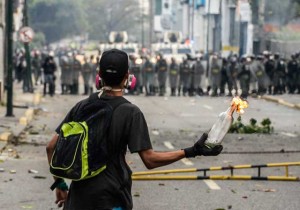 Venezuela: Crisis, protests, inter-bourgeois political struggle and threat of imperialist war
Venezuela: Crisis, protests, inter-bourgeois political struggle and threat of imperialist war
– Venezuela is in crisis because capitalism is in crisis; or rather, the world capitalist crisis is expressed in Venezuela in a plain, raw and scandalously visible shape, not only at the economic level, but also at the political, social, ideological and probably at the geopolitical-military levels here and now as well as in the future.
– The current situation in Venezuela is a demonstration of the failure of the governments of “21st century socialism” to successfully manage the capitalist crisis. What happens is that Capital and its crisis are unmanageable: it is Capital that governs society and therefore the State, and not the contrary. To believe the opposite is illusory, whereas pretending to do so is reformist.
– The government of the Unified Socialist Party of Venezuela (PSUV), as a good capitalist, can only “discharge” or push the proletarians to “pick up the pieces”: shortages, inflation, underemployment, unemployment, and impoverishment. That is to say austerity and misery. Logically resulting in new street protests against such material conditions of existence, as those of February-April of this year (and as those in February last year, of course). This government, according to its role, can only opt for repression: e.g. “exceptional” repressive laws passed by the Congress (as the resolution 008610, which authorizes the police to shoot on protesters with real bullets), resulting in the death of some young demonstrators caused by the police, etc. Despite the fact that the government of Maduro justifies itself while saying that it acted against “the destabilizing and putschist right wing, which plots with the Yankee imperialism” and even that it “regrets the death of these students”, it is obvious that this government– like all the leftist governments – is not at all revolutionary. (Once again, it should be mentioned that Rousseff and Correa do essentially the same thing in their respective countries.)
– Although in the protests last year our class did claim its material needs through direct action against Capital and the State (looting, barricades, stones throwing, attacks on parties’ headquarters, etc.); although this year it did once again take to the streets to protest against the scarcity and “against the regime”; and although the misery and repression that it now suffers from may drive our class to shake off so many years of “Chavism” and “social missions”, the problem is that the proletariat in Venezuela – as in many other parts of the world – is still weak. That is to say, it didn’t succeed yet to reorganize itself and to act with autonomy and power, with its own demands and organizations, as a real social force, as a class of negation. But this doesn’t mean that the possibility of an explosion of uncontrollable proletarian rage for both the government and the opposition, that the emergence of a savage proletariat in Venezuela should be ruled out, precisely because of the harsh conditions in which our class currently lives there. After all, our human needs as proletarians, unsatisfied or negated by private property and money, are in total and material opposition to the needs of the accumulation and administration of Capital; so that the structural and latent antagonism between the capitalist class and the proletariat may sooner or later break out; especially in a situation of crisis, since it can in turn reheat this “breeding ground” for the proletarian struggle against Capital and its State.
– The low-income students, the unemployed and the “informal” underemployed in the streets, who in Venezuela – and in Latin America in general –proliferate in misery, and who are furthermore those who live in the suburbs and peripheral settlements… As well as the “indigenous” and “peasant” proletarians from other provinces, who have repeatedly confronted the oil, mining, and coal companies, all of these latter being backed by the forces of the 21st century socialism order… Without forgetting the various sectors of the working class that have protested about demands: layoffs, wages, services, etc. All of them constitute the proletariat in struggle, and their presence in the streets, setting up demonstrations of revolt, proves this. Consequently, it is utterly stupid to generally consider the protests as if they were a homogeneous amalgam that exclusively obeys the designs of the Democratic Unity Roundtable. “Fascist opposition” or “imperialist agents” are some of the ridiculous mottoes that we see daily in all the rancid left medias to designate those who struggle against their miserable conditions of existence…It is necessary once and for all to break with all those false reductionist interpretations that only defend at all costs progressive reformism adorned with anti-colonialist flags.
– We have said that a proletarian revolt in Venezuela is a possibility and not something “inevitable”, because to think the latter would be mechanistic and keep false expectations. In addition, because it would be absurd and irresponsible not to notice that both the Venezuelan government and the Venezuelan right wing can– as always – fish in troubled waters or frame the mobilization to demobilize the whole movement. Indeed Maduro’s government de facto is already taking advantage of the US threat against Venezuela to further shield its State machinery and to hide or to relegate to the background the crisis and the internal class struggle, calling for “patriotism”, “sovereignty”, “anti-imperialist solidarity” and in passing to exhort to sacrifice for “national economy”. And the Venezuelan right wing (represented by the Democratic Unity Roundtable – MUD), because it is obviously backed by US imperialism and because, it would, in case of invasion, restore its political power. Regional and world political history shows that the things happen this way and there should not be doubt about. Against this, we clarify that the proletarian rupture and autonomy that we consider necessary to appear in Venezuela would not only be outside and against the left-wing government of Maduro or the “Bolivarian” bourgeoisie, but also outside and against the Venezuelan right-wing opposition, this “oligarchic”, rancid and ultra-reactionary bourgeoisie. Not only outside and against this or that faction of Capital-State, but outside and against the whole Capital-State itself. All this in this concrete case means and implies not to participate in the inter-bourgeois political struggle government versus opposition, not to play their game, but on the contrary: to overflow them, to break with them, to assume the class struggle to defend, generalize and impose our human needs on those of Capital, our own class demands through our own structures of struggle. What in turn could lead to a revolt and then to assume the need to struggle for social or total revolution; not for a political, partial, bourgeois revolution (where the right wing restores its political power or the left wing keeps its own one), and much less so that it leads to imperialist war that makes the proletariat serving as cannon fodder (in the case that the US would invade Venezuela). The existence or emergence of militant and active revolutionary minorities in Venezuela – of which we still have no real and convincing signals – should be one of the main tasks at the moment. Or maybe that the proletariat in Venezuela – including its radical minorities – will react and struggle against its mortal class enemies only when the war will be killing thousands of proletarians on the streets and frontiers, not only from starvation but from bullets by both States? The real class struggle will be the one that will have the last word.
– All the socialist, nationalist and anti-imperialist governments that have existed have been, are and will be capitalist, the “Bolivarian revolution” leaves intact the national State, private property and foreign and domestic mercantile trade, which are fundamental elements of the capitalist system. Leftist and progressive governments are different in form but not in content to their right-wing and imperialist rivals. Their struggles, including their wars, are inherent, inevitable and necessary for this system to function and survive: capitalism cannot exist or be such without competition and without war. (In addition, there has been no war of defense of national sovereignty and/or national liberation that has not been a part of an inter-imperialist war.) But these inter-capitalist struggles will only continue to play the leading role until the proletariat reappears in the forefront with force and autonomy in defiance of the existing order. Then both bourgeois sides, now adversaries, would without shillyshallying unite as one single party – the party of order, reaction, and democracy – against our class, because they would rather prefer to become allied than to see tottering the system that assures them power and domination.
– Such a budding picture would be even more catastrophic if China and Russia decided to support Venezuela even militarily, not because of “ideological affinity” or “anti-imperialism”, but because both Eastern emerging powers have strong economic and geostrategic interests to care for in that country as well as in South America in general. For their part, as in recent times the US have lost ground and power in other regions, today they return to their usual “backyard” to play it as a “trump card” in their declining unipolar supremacy policy. Thus, not only oil and territorial control would be in dispute, but also a part of the very world hegemony. Libya, Iraq and/or Ukraine in Venezuela? Maybe. Be that as it may, imperialist war drums resound in South America, or rather those of the American military invasion into the territory of the Venezuelan State.
– The “violation of human rights” by this leftist government – as if no State used its repressive terrorism! Hypocrites! – is nothing more than a plausible pretext to raise a discourse about the “lack of freedom in Venezuela”. The US has already used similar excuses for that purpose just a few years ago on Libya and Iraq [and now in Syria] – and it did so on the eve of some wars during the twentieth century. No, it is not a “lack of democracy”, but everywhere it is the same democracy that represses us, imprisons us, tortures us, and murders us; because democracy is actually the “legal and legitimate” dictatorship of Capital over the proletariat. Let’s remember that also with this pretext the US has already made several wars in different peripheral or “non-Western” regions of the planet. So you want to do it for oil? Yes of course, considering the large reserves of “black gold” possessed by Venezuela, as well as the large oil business agreements between the “Bolibourgeoisie” and Chevron, in the sense of monopolizing the international oil market in this region (as Marx said, competition and monopoly are not antagonistic but complementary poles, the two sides of the same coin, and as the bourgeoisie and its economists say: “in business there are no friends”). Further in the background, considering that oil is energy and energy is the blood of the economy, that is to say it is a lucrative business per se as well as an outlet for the current global capitalist crisis. Something that, however, will be “more expensive” and catastrophic in the future due to the current “oil crisis” and all the disasters and conflicts that it entails. However, oil is not yet the main cause of this drama or international tension in the region.
– The American bourgeoisie and the Pentagon are not stupid neither they sit idly by. It’s just the opposite. If neither a left-wing government nor the right-wing opposition has been able to manage the capitalist crisis in an important part of their “backyard”, there is also the “risk” in this country that the proletariat (that “ghost” feared by the whole bourgeoisie) re-emerges with explosiveness and out of control, as a genuine, autonomous and indomitable force. A potential “hunger revolt” and revolt against the State in Venezuela? In the face of such a threat, the US cannot fail to fulfill its role of world gendarme and police: this is one of the needs for an armed intervention in Venezuela. And perhaps we should not wait for such a potential revolt to happen, but we would rather anticipate the movements aiming at “preventing it”. In conclusion, the imperialist war consists, as always, in crushing any revolutionary attempt and repolarizing the power of the bourgeoisie. War is always the war against the proletariat. In this specific case, it is a question of “neutralizing” the fundamental and real contradiction: the class antagonism and all attempts of a radical revolution.
– Moreover, it’s not only because of the threat of a savage proletariat in that country that the US would wage an imperialist war against Venezuela, but because it already has a potential problem “at home”: the movement of protests and riots unleashed in the cities of Ferguson, Baltimore, Oakland and Charlotte over the last four years. In other words, the US would also wage war in order to strengthen and to win the war against the proletariat that lives and struggles within its own territory: for example, while enlisting young proletarians in the ranks of the army – blacks, Latinos and whites– to kill and die in other countries, and thus to avoid them hanging about the streets like “vagrants” and “vandals”. What paradoxically could be transformed into a boomerang, and there are already a few indications or samples of this. This is another fact that justifies the importance of the international relationship between Venezuela and the United States today. As well as the internal situation in both countries, in the sense of manifesting the historical and concrete dialectics between class war and imperialist war.
– By that very fact, the only one that can stop and reverse the imperialist war conducted by the US in virtually all the world, is the proletariat not only of the countries at war – real or potential ones– but the proletariat of all countries and all regions, of all “colors” or “races”, acting as a single world and historical force against a single enemy: the World Capital-State. The only way to genuinely and radically get rid of war and capitalism is the world proletarian revolution. But for that, first it is necessary that our class assumes itself as such, as proletariat, as a class antagonistic to Capital… A class that overcomes the separations (national, racial, sexual, ideological, etc.) imposed by Capital… A class that re-appropriates its historical program and struggles to impose it… A class that fights for its own demands with its own forms of association and methods of class struggle… A class that assumes it has no country and that practices proletarian internationalism, while struggling against “its own” bourgeoisies and national States, as well as against all nationalism and regionalism (which are ideological and identity strains so entrenched in Latin America)… A class that opposes imperialist war with revolutionary defeatism and turns war into revolutionary and world class war. A revolutionary subject is needed. But it will only be reconstituted in the heat of the class struggle and, as history showed it, after many defeats. How many more defeats will be needed, proletarian brothers from all over the world?
– Perhaps we are ahead of the facts, but if such a thing does not come to fruition, or if the US doesn’t invade Venezuela, we would exclaim in the same way and would continue to exclaim because today, as always, no matter where you look, we are at war. Capital and its State have always been, are and will be in permanent war against our class to keep us exploited and dominated, divided and weak, annihilated and destroyed as a class. Then, to defend and recover our lives, it is time for the proletarians to take up the class war and go on the offensive against their enemies. Everywhere and until the end…
Proletarians living in Venezuela and everywhere else:
No government, no opposition, no invasion!
No sacrifice for any nation!
Against the inter-capitalist and imperialist war: autonomous, anti-capitalist, anti-State and internationalist class struggle!
World Proletarian Revolution or Death!
Proletarios Revolucionarios
[Revolutionary Proletarians]*
* (We have slightly modified the wording in some paragraphs of the text in order to stimulate its reading, of course, always without altering at all the content and the positions exposed, since we fully agree with them). [Editor’s note]
# # #
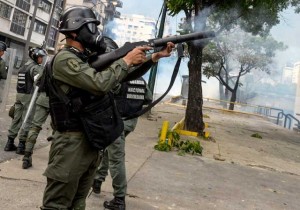 POPULAR POWER AND SOCIALISM IN THE 21st CENTURY
POPULAR POWER AND SOCIALISM IN THE 21st CENTURY
The modern clothes of Social Democracy
The famous “Socialism of the 21st century” is nothing else than the Popular Front of the 20th century. The old Social-Democratic soup is served again at the table of the proletariat in order to encourage it to fight against “the right”, “neo-liberalism”, “imperialism”, “the fascists”, “Yankees” or whoever would be politically indicated as the new enemy at the next social forum, counter-forum or cultural meeting. And so try to prevent a complete confrontation with our class enemy: the world bourgeoisie, here or elsewhere, left or right, which always represents Capital.
Therefore today, particularly in Latin America, the progressive governments idealize strategically certain sectors of the bourgeoisie, singing the praises of some and spitting on others. The same strategy that, all proportions taken into account, worked in the thirties of the last Century, liquidating the most combative sectors of the international proletariat, particularly in the Iberian region where revolutionaries from all over the world had joined, and which was crowned by massacring the proletariat in the course of the so-called World War II. The creation of pseudo-antagonisms such as fascism versus anti-fascism works to the advantage of the world bourgeoisie. To evade class antagonism by calling for a struggle against this or that sector of the dominant class is indeed not a novelty.
Those who call upon us to support the progressive forces of the national bourgeoisie, anti-imperialists, bourgeois industrialists “against backwardness in the countryside”, are the same who, at other occasions, call upon us to fight against this same forces. They will call it strategy; they will call it politics… It is the progress of Capital and they are its agents. The maintaining of the capitalist order, with its peace and its war, is based on this disorientation, on the channeling of the proletariat in bourgeois projects dressed up as revolutionary. The call to construct a “popular power” is one of these. If all supporters of “popular power” are not supporters of the “socialism of the 21st century”, sometimes to the point of having big disputes amongst themselves, these two concepts share the same ideological trunk. We do not pretend to interfere in terminological politician’s trifles, but want to mark their main characteristics.
The calls to construct a popular power, raised by alleged communists or anarchists, up to and including Chavistas (supporter of Chavez), are characterized in their main lines by an insistence on a non-class based Populism and a fuzziness – specific to the need to pick up the largest quantity of possible sectors – which bets on terminological tricks, be it to define the term “popular” or to define “power”, in its manifold declinations like “being able to do”, “counter-power”, “dual power”, “the taking of institutional power”, “not taking the institutional power”, “the struggle outside of the institutions”, “critical support for the government”, etc. Popular power can signify demanding either the political power for the people, or an increase in the number of the popular organizations that engage themselves in the struggle for reforms, to the point of gaining sufficient force to make the electoral step; it can moreover signify the power to create popular schools, cooperatives, self-managed health, communication or food enterprises, etc., that, in the majority of cases, are propelled by the State or that do not succeed to maintain themselves in its margins. In the most “radical” cases they are only in appearance completely independent from the State but, far from perturbing the capitalist order, they do nothing else than managing it. In this sense they are also part of the State. In Venezuela the suffix of “Popular Power” has even been added to the name of every Ministry and, when Chavez passed away, the bourgeoisie, up to and including libertarians known for their “critical support” have mourned him. But “Chavism” and its bourgeois opposition are nothing but two forms of capitalist management, two alternatives supporting the march of Capital.
We are not interesting in describing their proposals but we want to affirm that their projects, by profiting from our current weaknesses as a class, negate the social revolution, conceived as a complete break, in order to convert it into a process of absorption or political reforms, where the institutions and their functions will begin being “of the people”, to deny the proletarian character of the revolution, to deny that it is the bourgeoisie that holds the power. For us the stakes are to destroy its power, to negate it, to impose total revolution on it, to understand that the necessity of revolution does not derive from an abstract idea, but from the generalization of all our human needs and desires, and not from an amorphous and gradualist unity of demands converted into separated reforms, classified as political, economic, cultural, ecological, gender, immediate or historical.
These tendencies are so reformist that in most cases they do not even speak about revolution anymore but about social change, about a process of change. This reformism that separates everything, engenders in its turn “new subjects of change”, assigned to this or that “popular sector”– sociological classifications assigned by academicians and politicians who always use them to divide, to isolate the proletariat and to force it to submit itself to the bourgeoisie and to maintain exploitation. They speak to us about indigenous people, students, women, peasants, workers or unemployed, about the precarious, professionals, middle class, intellectuals, about people… and finally of citizens. And if there they look for a “subject of change”, it is because they do not want to change anything at all, and least of all they want a proletarian revolution. On the contrary, they are looking for the destruction of the proletariat and its program, by maintaining the State, democracy and its rights, wage labor and private property.
The rare who dare to speak about the laboring, working or exploited class, do so in an apologetic way, in order to continue defending wage labor and conceive of the class as the sum of all these subjects or popular sectors, who should unite behind one or another political project that will give answers to every sector in particular. Once again, it is about nothing else than the Social-Democratic notion of revolution as a simple accumulation of reforms!
The bourgeois character of these projects becomes more obvious where they try to channel the proletariat into Latin Americanism, which is nothing else than an addition of nationalisms, than the defense of the interests of a specific group of bourgeois through a groups of States. Every State is imperialist, however weak its national economy or however backward its industry. In the wars of Capital, as in the markets, only the bourgeois imperialist interests are at stake and never the interests of the proletariat. The ideological separation between the First world, the Third World or “developed countries” and “countries in development” opposes the proletarians between themselves, blurring and impeding the revolutionary tasks. According to the gradualist conception of the revolution, in Latin America, it is necessary to accomplish the bourgeois-democratic tasks by developing national industry, by strengthening democracy. Once more it’s the farce of national liberation, but this time more by the ballot boxes than by arms.
The criticisms of these tendencies are as old as the confrontation between revolution and counter-revolution. Even though it presents itself as a novelty of the 21st Century, it is nothing but the old reformism with a new face that is defended in the name of “revolution”, while denying its necessity. But reform is always and in every case the weapon of the enemies, of the exploiters and oppressors against the human needs. Revolution, the imposition and generalization of these needs, cannot realize itself by reforming this society based on exploitation, sacrifice, brutal negation of life to the profit of the valorization of Capital, but only and exclusively by its violent destruction.
The reforms and constructions that the popular power proposes are neither incomplete nor stopped halfway; they go in a quite different direction! They are part of the politics of the bourgeoisie to channel and negate the revolutionary force of the proletariat and to transform it into a productive force of Capital.
Any defense of the national economy, whether it paints itself in socialist colors or not, is the defense of our exploitation.
Against the alternatives of bourgeois management, let us oppose the organization and the centralization of proletarian struggles.
Faced with the capitalist catastrophe, there is only one road for life: the revolutionary destruction of wage labor and commodity.
Proletarios Internacionalistas
[Internationalist Proletarians]
[1] Translator’s note: the Spanish original version of this text proposes as a title (“El mito de la izquierda se cae de maduro”) a play on words which is untranslatable in English. Maduro is the name of Chavez’s successor at the head of the Venezuelan Nation-State but it means also “to be ripe”, “mature”.
